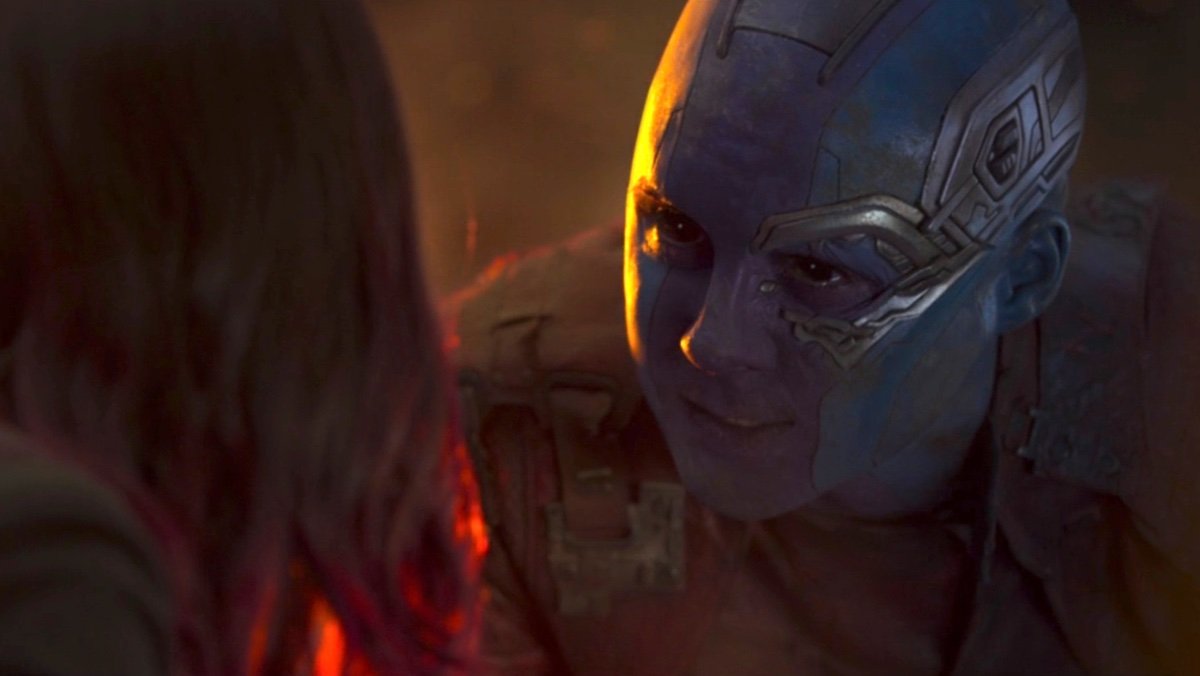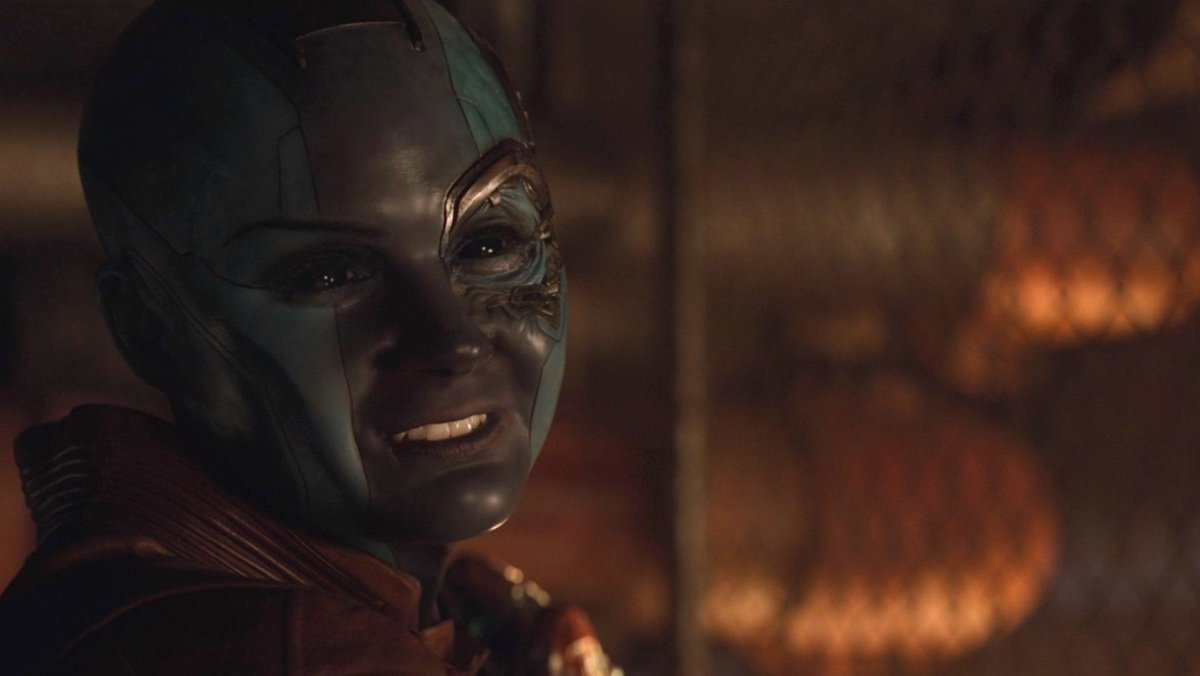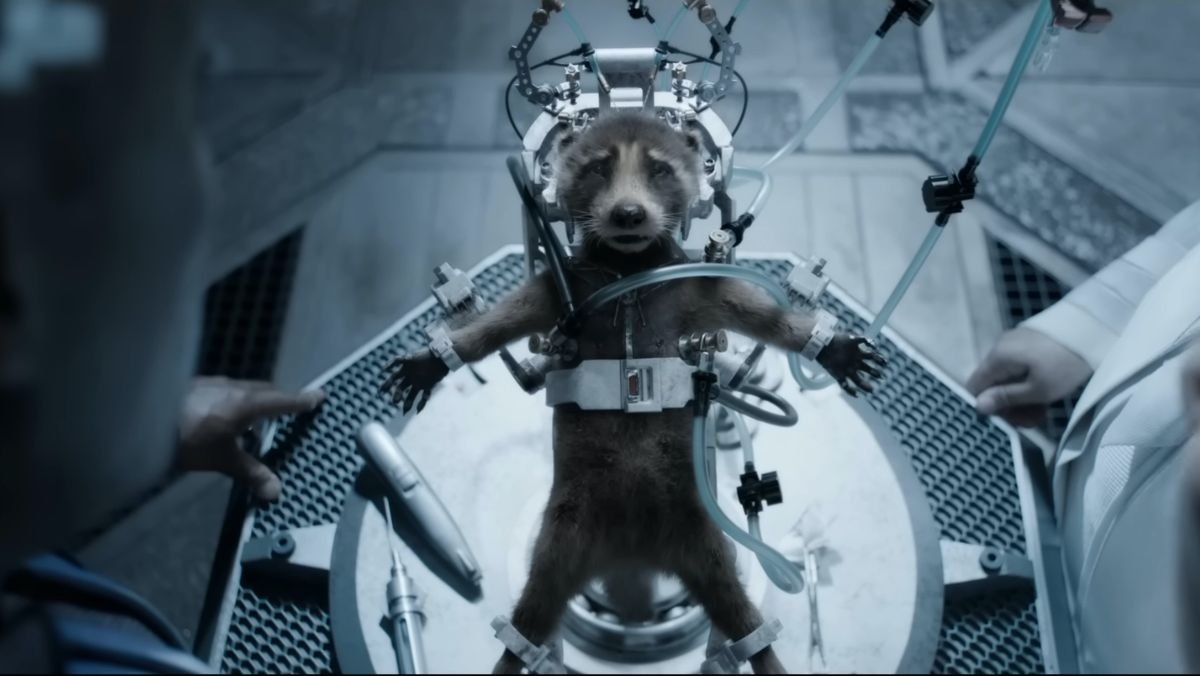Nebula was once the Guardians of the Galaxy franchise’s best, most compelling villain. In fact, that’s all she was in their original movie. She began her on-screen journey as a terrifying, fearsome, sneering killer cyborg without any redeeming qualities. Now Karen Gillan’s character is a genuine hero and member of a beloved team. Nebula’s complete and well-earned transformation during her time in the franchise is worthy of celebration.
Guardians of the Galaxy Vol. 3 was the most emotional and meaningful chapter in Nebula’s story yet, as the movie completed a character arc that stands as one of the MCU’s most powerful. She’d already found a family that loves her. She had also already learned how to care about others. The difference for Nebula this time was that she finally learned to do the one thing she needed to truly find peace and happiness. She learned to be kind to herself.

The second Guardians movie revealed why the villain of the first film was full of so much anger and hate. It also revealed why Nebula was worthy of genuine sympathy and understanding. Like Gamora, Thanos had stolen her as a child. In his efforts to make Nebula a more deadly weapon he pitted his “daughters” against one another in training. Every time Gamora won Thanos “would replace a piece” of Nebula with machinery. Yet, the horrific physical abuse wasn’t even the worst of it for Nebula. It was the emotional toll. That came at the hands of Gamora who won “again, and again, and again, never once refraining” from showing mercy to her weaker sibling.
“You were the one who wanted to win!” Nebula screamed after besting Gamora during a fight in Guardians Vol. 2. “And I just wanted a sister!” Nebula’s only desire was to feel real love, and Gamora was the only one capable of giving it to a scared kid. Instead, as Nebula said, Gamora’s need to win their father’s approval is why “Thanos pulled my eye from my head and my brain from my skull and my arm from my body.” That happened again and again because of Gamora, the sister we’d thought of as the good one.

They eventually got past their hatred in that film, a movie that featured Nebula saving Rocket’s life before she helped save the entire galaxy. It ended with them as real siblings who cared for one another. Even after an awkward hug, Nebula still wasn’t capable of being a part of a family. She said she would fulfill Gamora’s wish to protect other innocent girls by killing Thanos. At that time Nebula was still driven by hate and anger. However, it wasn’t just hate and anger at her father that drove her. It had never been.
The death of Gamora and the scope of The Snap in Infinity War changed Nebula. Her father’s atrocity, which in many ways she enabled, pushed her to become a part of something bigger. After half the universe vanished into dust, she cared for an ailing Tony Stark in Endgame. She even comforted—and found comfort in—Rocket. Then she joined the Avengers to help keep Earth safe. And after her capture during the Time Heist by Thanos in the past, Nebula convinced the alternate 2014 Gamora to help her stop their father. That ultimately forced her to (literally) kill the person she had once been. Before she did, the alternate Nebula revealed something else about who she had truly been all along. In doing so she revealed who she was really angry with all this time.

“You can change,” the original Nebula told her old self in Endgame.
“He won’t let me,” responded 2014 Nebula, the same person we’d previously met in 2014’s Vol. 1. It wasn’t that Nebula ever wanted to be a villain. It was that she didn’t believe her father would ever let her be anything else. Her entire identity was defined by how he saw her. That made her desperate for Thanos’ approval. Nebula’s entire sense of self-worth came from the person who’d inflicted so much pain on her.
That clearly didn’t end when he died (either time). Even with Thanos out of her life forever, in Guardians of the Galaxy Vol. 3 her emotional scars still hadn’t healed. Nebula was generally a good person at the start of the movie, but she was still angry and impatient with others. Those were unyielding vestiges of the person she had been. That often uncontrollable rage, as Mantis accurately identified, came from self-hatred. Nebula, who literally carried her past with her in the form of machine parts, blamed herself for what she was rather than Thanos. She blamed herself rather than the person who made her that way both physically and emotionally.

Because she blamed herself she couldn’t forgive herself. And because she couldn’t forgive herself she couldn’t allow herself any grace or understanding. Nebula’s self-hatred prevented her from showing herself the type of compassion she’d learn to show others. That not only impacted her self-worth, it made her a hard person to be around. We saw her hatred manifest in the way she lashed out at Drax, her complete opposite in many ways. He never held himself accountable for his own shortcomings, let alone hate himself. But he was also loving, compassionate, and kind to others in spite of theirs.
That all changed because she was forced to confront Rocket’s own past, a past so very much like her own. Only by seeing her pain in someone else was she able to realize we are not to blame for the crimes committed against us. She didn’t blame Rocket for the High Evolutionary’s actions, so why would she continue blaming herself for Thanos’ choices? Her empathy for Rocket was the first time she had empathy for herself. It’s why she lost control of emotions she’d never seemed capable of before. We saw that journey of self-discovery play out thanks to James Gunn’s emotional script and Gillan’s powerful, nuanced performance, as Vol. 3 conveyed the desperation Nebula felt trying to save her friend because she didn’t just love him, it was the closest she’d ever come to saving herself.

The entire weight of her past and all the pain she’d forever carried came crashing down when she learned Rocket had survived. Knowing he could survive his own past was a moment, and that others could care about you so much more than they do themselves, was an overwhelming revelation and relief she had ever known. The tidal wave of feeling that moment unleashed within made her vulnerable in a way she’d always refused to acknowledge. So much so that Nebula did the once unthinkable and cried in front of others.
Once that dam broke in her heart broke all the other protective barriers she hd put up went with it. As did and the anger she’d covered them in to mask her deep sadness. It wasn’t that she forgave herself in that moment, it was something better. She realized she had never been at fault in the first place.

Nebula ended Guardians of the Galaxy Vol. 3 caring about others in a way that was only possible because she learned to care about herself. Showing herself grace made Nebula a better person. She became the best version of herself, someone who could look at Drax and see what made him a good person worthy of love and compassion rather than someone defined by his failings.
It also made her realize the kind of good she’d always been capable of in her heart. She fulfilled her late sister’s wishes and took on the responsibility of watching after those young girls. Speaking of them, they needed something more important than just protection. They needed the same thing her and Gamora once did—love. Nebula could give them that only because she did not let anger control her any longer. She gave up fighting and seeking vengeance, instead opting to make Knowhere a home for her and the kids. Nebula decided to dedicate herself to creating a life defined by the very best of what family can be. She would create a life where who we want to be matters, not how someone else defines us.

Nebula began her story as a villain and a weapon. But as the best dad she knows said, everyone deserves a second chance. In the end a triumphant and joyous Nebula finally found hers by finding the strength to be kind to herself. It’s how she found a happiness and peace she never knew before. And it’s how Guardians of the Galaxy franchise found a way to give us one of the best character arcs of the MCU.
Mikey Walsh is a staff writer at Nerdist. You can follow him on Twitter at @burgermike. And also anywhere someone is ranking the Targaryen kings.